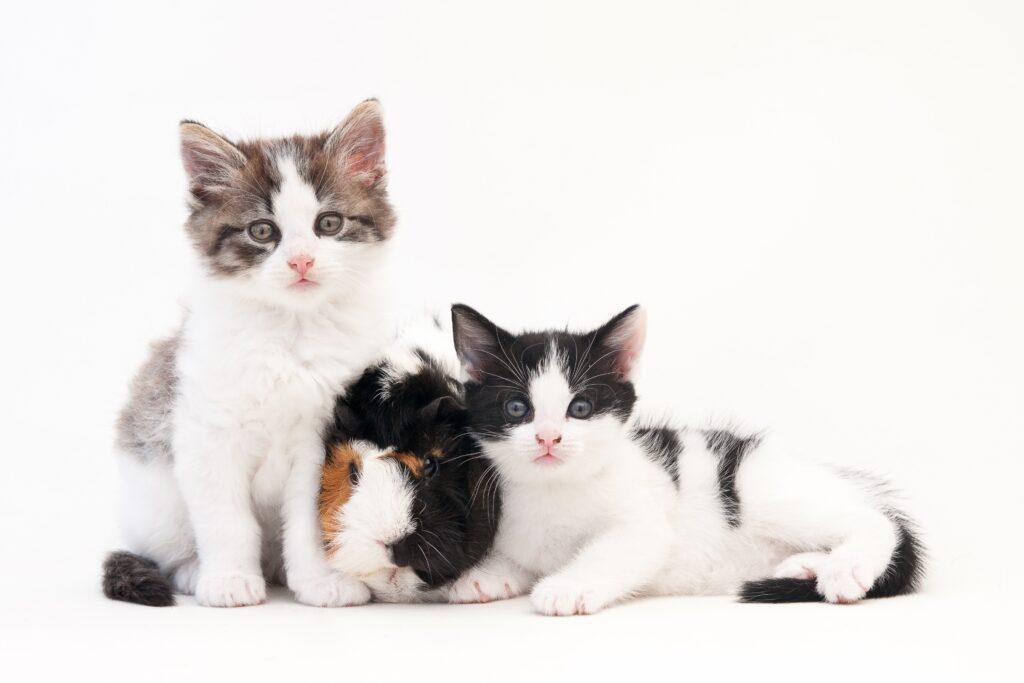Cats are beloved companions, but like all pets, they require proper care to stay healthy. Understanding common health issues and their prevention can help cat owners provide the best care for their feline friends. This guide highlights prevalent cat health problems in Nigeria and offers practical solutions for prevention and treatment.
Common Cat Health Issues and How to Manage Them
1. Fleas and Parasites
Fleas are common external parasites that cause itching, skin infections, and can transmit tapeworms.
- Prevention: Use veterinarian-recommended flea preventatives and maintain a clean living environment.
- Care: Consult a veterinarian for appropriate treatments if an infestation occurs.
2. Feline Lower Urinary Tract Diseases (FLUTD)
A group of conditions affecting the bladder and urethra, leading to difficulty urinating, blood in urine, and frequent urination.
- Prevention: Provide a balanced diet, ensure ample water intake, and reduce stress.
- Care: Seek immediate veterinary attention if symptoms arise.
3. Dental Disease
Conditions such as gingivitis and periodontal disease can lead to tooth loss and systemic infections.
- Prevention: Regular dental check-ups and at-home dental care, such as brushing.
- Care: Professional dental cleaning by a veterinarian.
4. Obesity
Excess body weight can lead to diabetes, arthritis, and a decreased lifespan.
- Prevention: Provide a balanced diet and encourage regular physical activity.
- Care: Consult a veterinarian for a tailored weight management plan.
5. Rabies
A viral disease that affects the central nervous system and is fatal once symptoms appear.
- Prevention: Ensure up-to-date rabies vaccinations as required by Nigerian regulations.
- Care: Immediate veterinary attention is crucial if exposure is suspected.
READ MORE:
- Symptoms of Tick-Borne Diseases in Dogs and Cats
- Cost and Types of Cat Vaccination in Nigeria, 2025: Price & Schedule
- What to Feed a 4-Week-Old Kitten in Nigeria – Best Diet & Tips
Essential Preventive Measures
Regular Veterinary Check-ups
Annual health examinations help in the early detection and prevention of diseases.
Vaccinations
Adhere to vaccination schedules for diseases like rabies and feline distemper.
Proper Nutrition
Provide a balanced diet suitable for your cat’s age, weight, and health status.
Hygiene Maintenance
Keep feeding areas, litter boxes, and sleeping quarters clean to prevent infections.
Expert Veterinary Care for a Healthy and Happy Cat
Ensuring your cat’s well-being starts with professional veterinary care. At Dulham Veterinary Services, we offer comprehensive health check-ups, vaccinations, parasite control, and tailored treatment plans.
Book an appointment today and keep your feline friend in top shape!
Visit Us
No 23 Crown Court Estate 2, Orunbe close , Oniru. Victoria Island, Lagos.
Phone Us
Mail Us
Frequently Asked Questions (FAQs)
1. What vaccinations are essential for cats in Nigeria?
Rabies vaccination is compulsory and must be administered between 30 days and 12 months before travel or as per local regulations.
2. How can I prevent flea infestations in my cat?
Regular use of veterinarian-recommended flea preventatives and maintaining a clean environment are key preventive measures.
3. What should I do if my cat shows signs of urinary problems?
Seek immediate veterinary attention, as urinary issues can escalate quickly and may be life-threatening.
4. How often should my cat have a dental check-up?
Annual dental examinations are recommended to prevent and detect dental diseases early.
5. What are the signs of obesity in cats?
Visible signs include excessive weight, difficulty in movement, and inability to groom properly.
6. How can I ensure my cat maintains a healthy weight?
Provide a balanced diet and encourage regular play and exercise. Consult a veterinarian for personalized advice.
7. How can I keep my cat’s teeth clean at home?
Regular brushing with cat-specific toothpaste and providing dental treats can help maintain oral hygiene.
8. What should I do if my cat is vomiting frequently?
Consult a veterinarian at Dulham Veterinary Services to determine the underlying cause and appropriate treatment.

